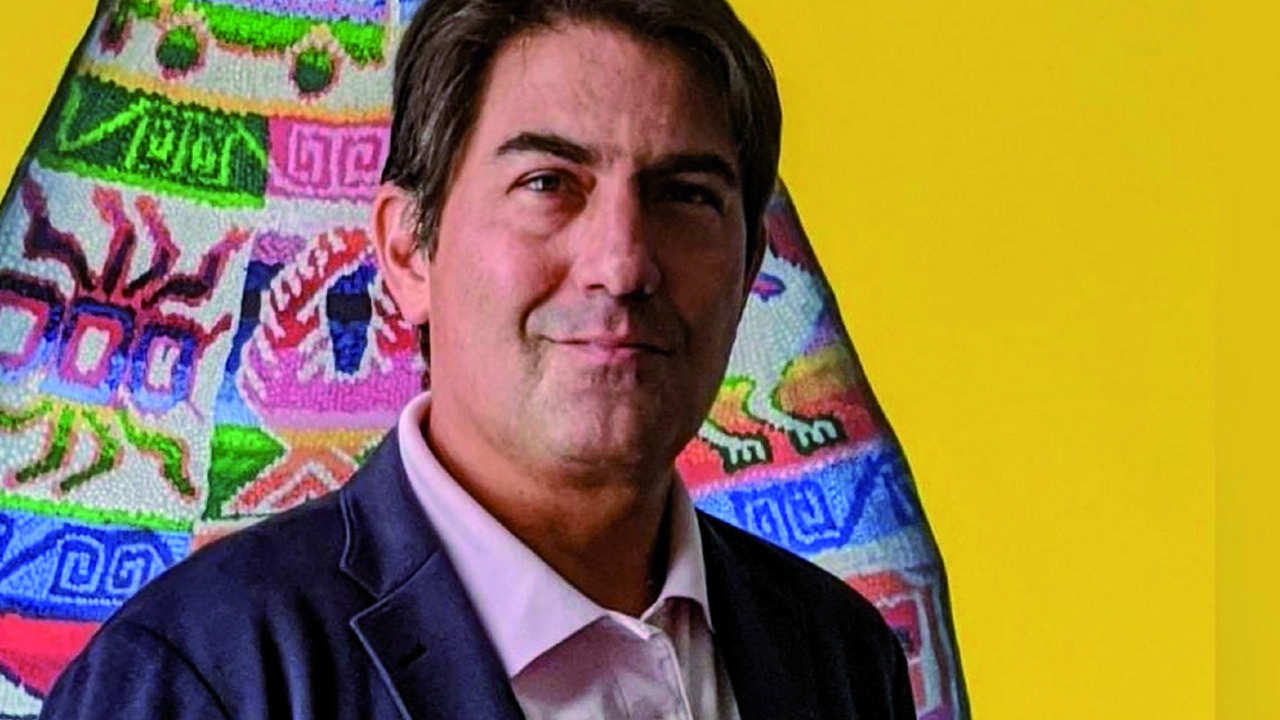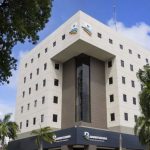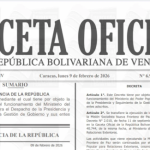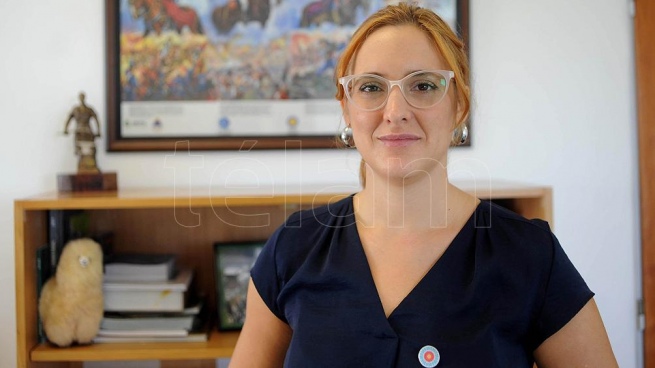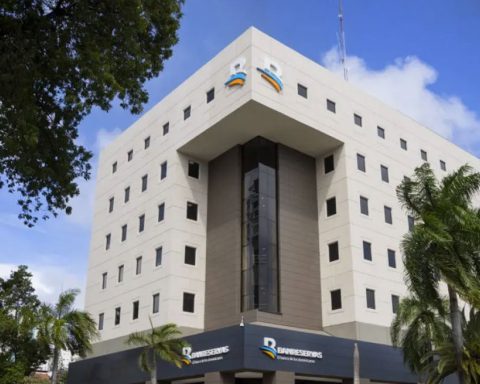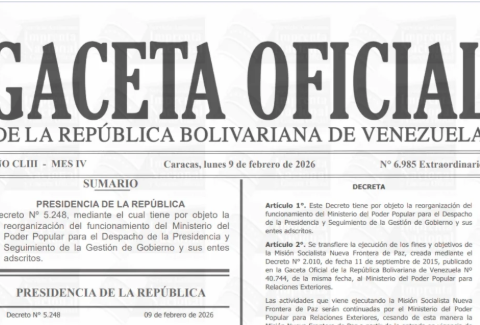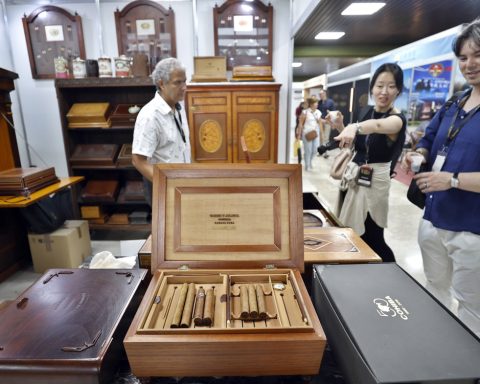Liliana Carrillo V. / La Paz
From Texas (USA), where he resides, Bolivian professor Diego von Vacano was key to enabling contact between Teague Egan, director of the EnergyX company, and the Bolivian government. The result was the signing of a project that will soon be launched by the US company for the ecological exploitation of lithium from the Salar de Uyuni.
It was a long term, which included misunderstandings and failed trips, but it was finalized with the signing of the agreement through which EnergyX became one of the eight foreign companies that will implement cutting-edge technology to take advantage of the country’s rich lithium deposits.
“It is not an exaggeration to say that Bolivia can save the world. We are in a huge crisis due to climate change and the only effective solution now is the transition to energy storage methods that require lithium. Bolivia has the highest amount of lithium in the world, as we have known for a long time, but only now are there real opportunities to transform Bolivia into the central axis of the global environment, “Von Vacano tells Página Siete.
Born in La Paz, Diego von Vacano has a doctorate in Political Theory graduated from Princeton and a Master’s in Public Management from Harvard. “I am an academic. What interests me the most is education. I believe that it is the basis of everything, for people as well as societies ”, he emphasizes.
He is also a professor at Texas A&M University, advisor to Luis Arce on lithium issues even before he was president. “After having spent more than 10 years in the purely academic field, now I am happy to be able to contribute a grain of sand to the development of my country,” he says.
How did you reconcile academic activity with your management of lithium?
From my doctoral studies, I was able to conclude that a mixed system, where the State and the market collaborate, is the ideal. There is a word for that system, it is “socialism”, and it shouldn’t scare anyone. It is not the same as communism, where the state controls everything and it is not the savage capitalism of laissez-faire.
Bolivia now finally has a practical and inclusive government. With President Luis Arce, the lithium sector can be developed to transform Bolivia and the world. We can all participate in this revolutionary process. As Chato Peredo said, “A revolutionary is not a foreigner anywhere and is a patriot everywhere.”
One of the differences in Arce’s management is that it is much more technocratic and cosmopolitan than the previous ones. The professionals at YLB are very well prepared. Ministers and vice ministers in energy areas are equally capable. From a technical point of view, the Bolivian salt flats are such enormous and rich resources that they allow Chinese, Russian, Argentine or US companies to work at the same time. It would be a fatal mistake to give exclusivity to a single company or a single country, because there Bolivia would lose its geopolitical importance.
In addition to EnergyX, what are the other seven companies that will develop pilot projects in the Salar de Uyuni?
The eight companies that have been accepted for the pilot process have very different technologies and that is good for testing different ways of working with Bolivian brine. In the end, maybe four or five can be chosen. Many are relatively new technologies, so there is not much information about the possible results. But you have to start at once, after 30 years of regrets (There is no need to comment on recent pessimistic views from people who failed to manage the lithium sector in the past, especially during the de facto period).
How did the process of rapprochement and management between Teague Egan of EnergyX and the Bolivian Government take place?
As a professor at Texas A&M University – which has very good engineering programs – I wondered a few years ago what its lithium capacity was. Researching, I was able to find Dr. Benny Freeman of the University of Texas-Austin.
He told me that he had very good technology for Bolivian brine. It does not require fresh water and the water circulates in a closed circuit. It also does not require evaporation methods that require a lot of energy or electricity, resulting in less greenhouse gas (GHG) emissions. For the environment, it is one of the best solutions.
Academically speaking, I was pleased to know that Texas, where I work, had a possible solution. Dr. Freeman told me that he worked with EnergyX, a startup from Austin, Texas. He connected me with his CEO, Mr. Teague Egan. I suggested to Egan that he try to work and invest in Bolivia.
Despite the high risks that Bolivia has (political, social, legal and logistical), Egan, who is very determined, daring and intelligent, decided to go in with everything. Many other companies (from the US, Canada, and Australia, for example) with which I contacted did not want to do so due to the high country risk.
The persevering attitude and desire to learn about Bolivia despite knowing little about the country is what I found to be very positive about Egan. Apart from the interest in developing lithium, he has the desire to create academic programs in the US and Bolivia that give the country a higher profile worldwide, especially in the energy field.
What are the advantages of EDL (Direct Lithium Extraction) technologies for the country?
Bolivia must take advantage of its new geopolitical scale before the windows close. A recent article on the front page of the New York Times –beyond any detail– fundamentally puts Bolivian lithium on the global showcase and that will attract more investment. But the country does not have its own technologies. The EDL (Direct Extraction of Lithium) technologies that other countries have allow Bolivia to finally take off. It can do so, without losing its sovereignty or privatizing lithium.
For that, Bolivia should not be closed to any country, including the US, where there are very good universities and technology centers. In addition, with Biden, the demand for lithium will generate a large US market for Bolivia. Scholarships, exchanges and agreements may be possible with North American universities. Where would you like your children to study, in Miami or Boston or Shanghai or Moscow?
What prospects does Bolivia have to be a lithium powerhouse?
By the Bicentennial of 2025, I expect Bolivia to have the largest lithium production in South America and two gigafactories of lithium batteries (one in Potosí and one in Santa Cruz), which, by the way, require sugarcane bagasse. In this way, Arce will be able to achieve the best lithium industrialization with the lowest environmental impact in the world in its second five-year period.
The economic growth in the communities of Uyuni and the integration of all the national regions will finally be like a cry of liberation after a century and a half of humiliation.
CV
-
Training Born in Bolivia, Diego von Vacano has a doctorate in Political Theory from Princeton University and a Master’s in Public Management from Harvard.
-
Teaching He is a professor at Texas A&M University.
-
Adviser It is from President Luis Arce on lithium in Bolivia and other issues.
Bolivia has the largest amount of lithium in the world, now there are real opportunities to transform the country into the central axis of the environment
